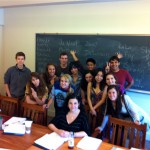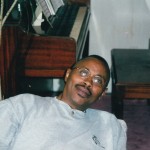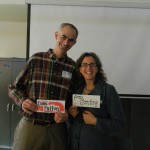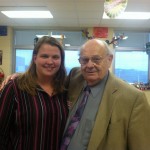Heimat
Forums › 2023 Summer Seminar › Belonging 2023 Summer Seminar Responses: due JUNE 8 (or earlier) › Heimat
-
AuthorPosts
-
-
June 12, 2023 at 8:04 pm #31826
I am fascinated by Krug’s use of the term Heimat in this book. I think of attachment to a place as less pronounced in modern society, especially in the United States. I have lived in four different states, but no particular place stands out beyond the others. My culture, beliefs, and habits have not been inhibited as I move from place to place. Most of my life I have lived in Oregon, which is a beautiful place to be. The western half of the state reflects my political views, the landscape is beautiful and plentiful, and there are many connections I have made with both people and places. However, I don’t doubt that moving to Vermont or New Mexico would create a longing for my “Heimat.” Even if it did, where is my Heimat located?
Perhaps that is what Krug’s journey through time and space is really about. Perhaps many of us are without a defined Heimat and must seek one out. For many Americans that are only generations away from their family’s original homes, America may not feel like home. My ancestors from abroad came to North America over 125 years ago, and I suppose I should feel attached. My native ancestors have inhabited Alaska for thousands of years. Survival relied on a deep connection to the land. It also created more respect for it. I think I could move to Berlin and feel at home as soon as I learned German and made new friends. Perhaps I am just a transient American seeking an accepting new home as opposed to discovering an old one.
At the same time, Krug speaks of this idea of Heimat as something that can be lost. The circumstances that separated her father, and therefore his family, from the place of his birth were horrendous. If the search for her Heimat motivated Nora Krug to face the terrible possibilities of her family’s past, then perhaps it is a good thing. It takes strength and courage to uncover the truth when it has the potential to be life altering and damaging. If the quest to discover one’s Heimat is ultimately about seeking the truth, then the term is indeed powerful.
-
June 13, 2023 at 10:47 am #31833
Jeremy,
I love the last line that you wrote – “If the quest to discover one’s Heimat is ultimately about seeking the truth, then the term is indeed powerful”. What a powerful thought about this seemingly simple search for self. In searching for self, as Krug speaks about, there becomes a balance of responsibility and acceptance. We must accept the errors of our ancestors and take responsibility to ensure that they do not happen again. It is on us to ensure that they do not get repeated. -
June 19, 2023 at 8:11 pm #31887
Jeremy,
I second what Ashley said. Your last line, for me, really speaks to the intent of Krug’s search. She seems to be searching for truth and identity, of learning and knowing who we are.
-
-
AuthorPosts
- You must be logged in to reply to this topic.
Recent Replies
Recently Active
-
Active 1 day, 6 hours ago
-
Active 2 days, 5 hours ago
-
Active 2 days, 9 hours ago
-
Active 3 days, 2 hours ago
-
Active 1 week, 1 day ago
- View All Members






